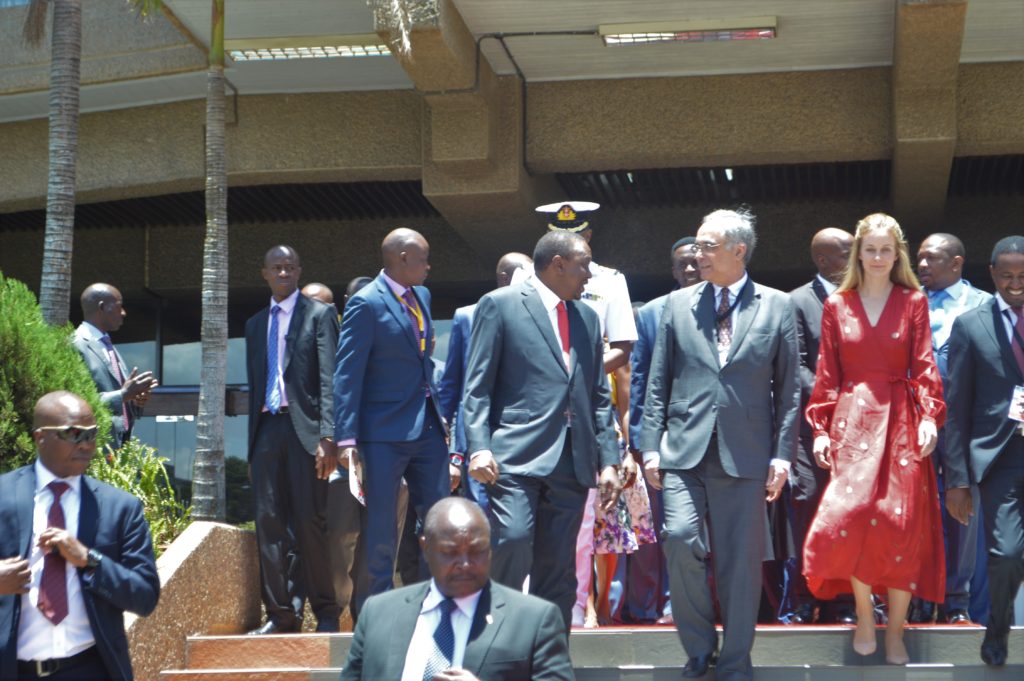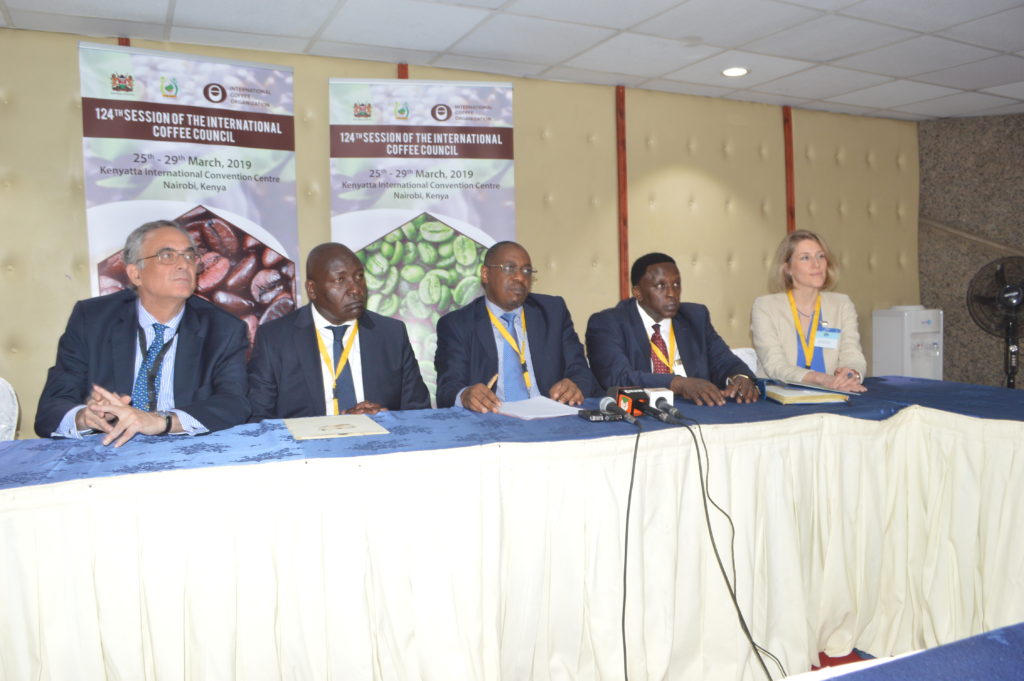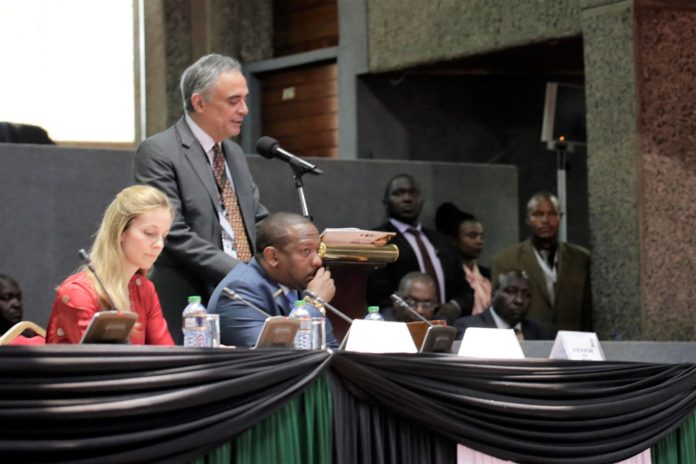By Winnie Kamau
Jose Sette, Executive Director of the International Coffee Organization recently thrilled the audience during the Opening ceremony of the 124th Coffee Session.
Sette narrated his personal experience to the delegates key among them, the President of Kenya, Uhuru Kenyatta who sat intrigued by Sette’s encounter of almost 40 years ago on the quality of Kenyan Coffee.
“To illustrate this I would like to take you back to the beginning of my career almost 40 years ago. My first job was in the Instituto Brazil de café the Brazilian institution responsible for regulating coffee at that time.” Jose narrates.
“I was responsible of escorting foreign guests and one such guest was the head of National Federation of Coffee Growers, Arturo Gomez. For those who are young to know Don Arturo was a true legend in the history of coffee he ran the federation from from1958 to 1982” adding that “Among the subjects we discussed on the way to the hotel is coffee quality, I asked him which coffee he considered to be the best in the world?”
Sette was shocked by the response of Don Arturo “Just expecting he would say Colombian, to my surprise he said it was Kenyan!”
“I have never forgotten Don Arturo’s words and neither should all the Kenyans here today.”
Adding “Kenya has a potential to be a leader in the specialty coffee market with its high quality of coffee as one of its most important asset to the world,” said Sette.

President Uhuru Kenyatta noted with concern that Kenya produces some of the best coffee in the world but regretted that the premium prices the Kenyan coffee fetches in the global market does not trickle down to the farmer.
“Paradoxically, these premium prices do not trickle down to the farmers, who by and large, are small-scale producers. This phenomenon, though not unique to Kenya, represents the single greatest challenge to the continued prominence of the coffee industry,” said Kenyatta.
Besides encouraging the youth and women to participate in the coffee value chain to both increase consumption and create jobs, President Kenyatta said the government is also aggressively marketing Kenyan coffee brands to the international markets.
“As part of this strategy, we are aggressively marketing globally to increase Kenya’s market shares in Europe, the US and in the emerging Asian markets,” he said as he expressed optimism that the status of coffee in Kenya is strong and its future outlook remains positive.
Africa produces about 10.8% of
Speaking to Talk Africa, Dr. Andrew Tuimur on increase of domestic consumption and creation of a Coffee culture in Kenya “We would like to move from 5% to even 30% and 50% in the four years, this will help us in enhancing our marketing. At times when the market is volatile and we don’t consume our coffee then the farmers will get into a lot of problems. So our idea is to increase coffee consumption and also address it through the youth and other stakeholders” said Tuimur.

Dr. Hamadi Mboga urged farmers to continue farming coffee as mechanisms of absorbing the low prices were being put in place in both the national government and County government “Based on the statistics we have, I think it pays to still invest in coffee and to value add and to create a domestic market and create a local consumption culture”.
Prof. Joseph Keiyah, Chairman of the Coffee Subsector Implementation Committee urged farmers to increase the production levels saying “40,000 metric tonnes it is too small, Kenyan coffee it is high value and you go to international markets and they ask where is Kenyan coffee”.
Though Kenya’s production has plummeted from 130,000 metric tonnes to 40,000 metric tonnes a year, the quality of Kenyan coffee remains to be unprecedented and remarkable in the Global market.
Kenya and Africa as a whole can benefit from the increased demand and good prices if it taps more into Research and Development. Adaptation of new technologies and new breeds as the African Coffee Research Network becomes the Think Tank for Coffee Research in Africa so as to help the member countries optimize returns from coffee growing as witnessed in South and Central America.














